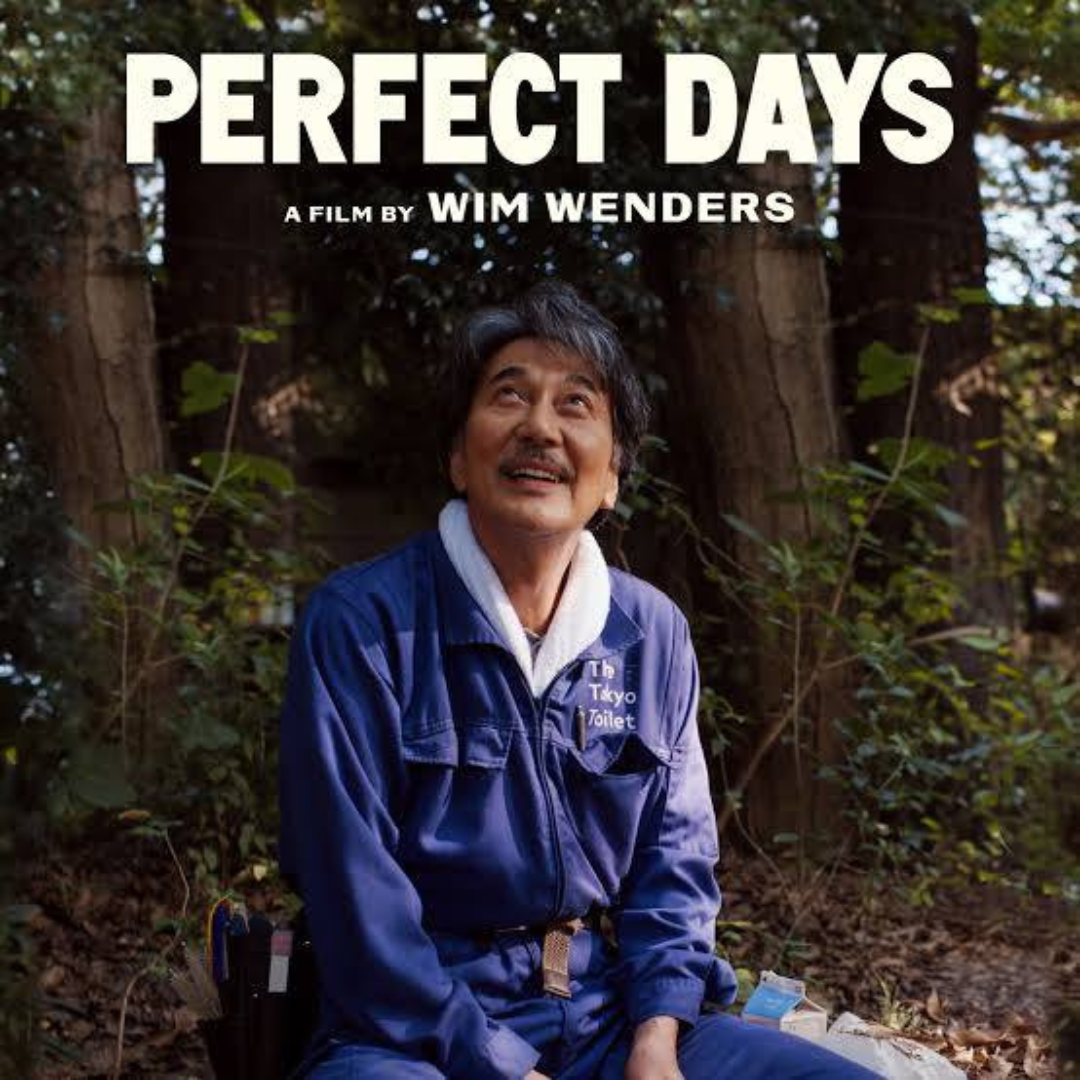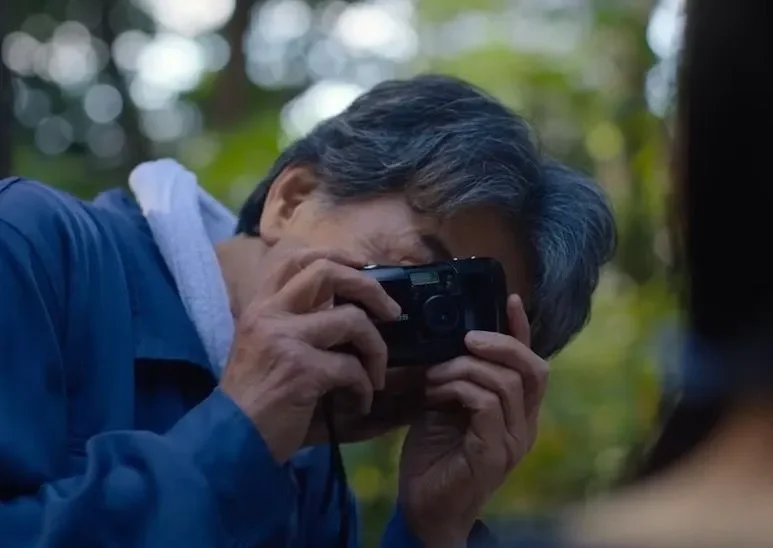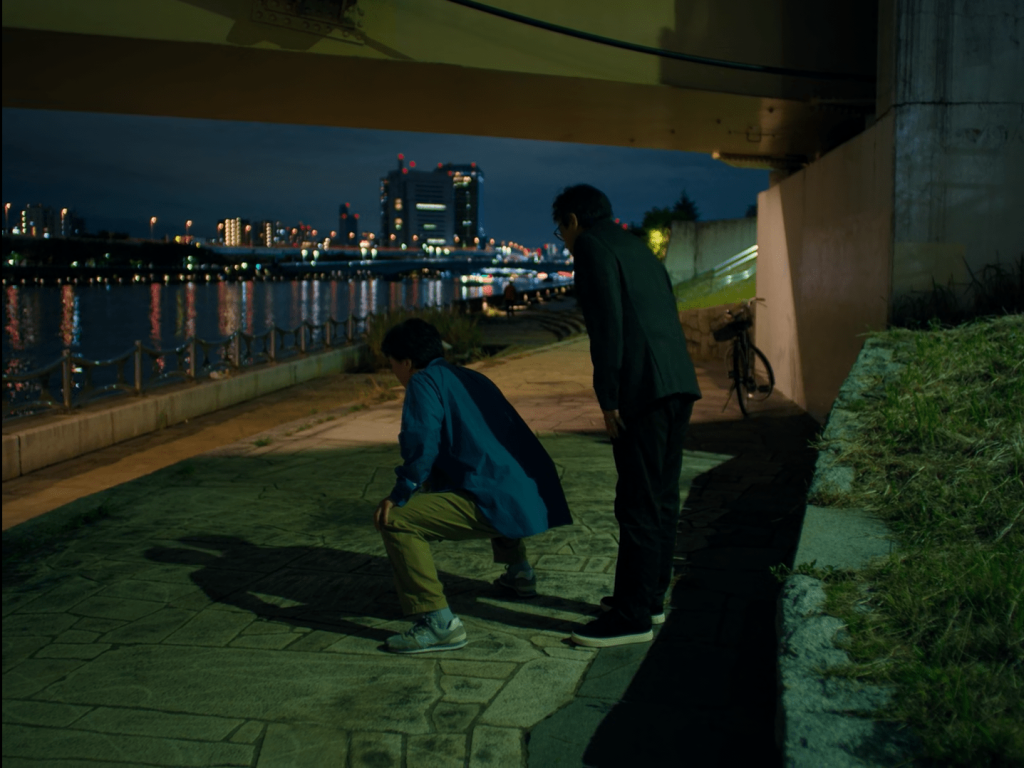🎬 Perfect Days (2023)
“Now is now. Next time is next time.”
Directed by Wim Wenders
Perfect Days invites us to slow down. It’s a quiet, tender portrait of Hirayama — a public toilet cleaner in Tokyo — whose seemingly ordinary life unfolds with understated grace. Each morning he wakes at dawn, tends to his plants, drives to work, and cleans every toilet with meticulous care. He reads books, listens to old cassettes, and photographs the same tree in the park as the seasons change.
At first, his days appear uneventful. But gradually, through the rhythm of repetition, something sacred begins to emerge. His life isn’t about chasing change or improvement — it’s about accepting what is, and finding peace in it.
As he tells his niece:
“Now is now. Next time is next time.”
A simple phrase, yet it captures the essence of the film — to live mindfully, one moment at a time. Within Hirayama’s quiet routine lies a calm, almost Buddhist balance. Life keeps changing, even when it seems still — seasons shift, morning light moves, faces come and go. Every gesture, even the smallest, is both familiar and new.
One of my favorite scenes is when Hirayama finds a scrap of paper behind the mirror and plays tic-tac-toe with a stranger — a brief, human moment that says more than words ever could. I also love his daily rituals: photographing the same tree, visiting the same bookstore, buying old paperbacks. It’s not routine but meditation — a peaceful way of being here and now.
Wenders shows Tokyo through Hirayama’s gentle eyes — filtered light, the sweep of a broom, the rustle of wind. Perfect Days is a quiet rebellion against a world that keeps telling us to do more. It reminds us that joy can live in simplicity — in cleaning, watering plants, or listening to the same song again and again. There’s dignity, calm, and hidden beauty in the everyday.
Shadows
The motif of shadows (and light) appears repeatedly in the film — both visually and thematically.
Visually: the camera lingers on komorebi — sunlight filtering through leaves — and on the interplay of bright, mundane spaces and darker, interior moments of memory.
Light and shadow coexist the way presence and absence do in daily life.
Thematically: shadows serve as metaphors for what remains hidden — memory, regret, the unspoken.
The dream with the kanji 影 (kage, “shadow”) and the later shadow-tag scene both mirror Hirayama’s inner world — quiet, layered, and reflective.
When two shadows meet, they don’t deepen — they simply coexist. It’s a quiet truth running through the film: darkness doesn’t multiply when shared; it softens.
For Hirayama, his routine is a buffer against chaos, a structure protecting him from the darker, unseen parts of life. Yet the film shows how that buffer gently shifts: light seeps through, shadows move, and still — the day continues.
Ultimately, Perfect Days doesn’t offer catharsis or grand transformation. Instead, it suggests that acknowledging our shadows — the hidden, the hurt, the imperfect — is part of what makes a day “perfect.” Not because everything is flawless, but because we live with awareness and care.
The story behind the toilets
The film was born from a real project: The Tokyo Toilet, launched by The Nippon Foundation in 2018 to redesign public toilets across Shibuya. These are not ordinary facilities — they’re architectural gems created by world-famous designers like Kengo Kuma, Tadao Ando, and Shigeru Ban.
You can see them here ➡️ tokyotoilet.jp/en
Shigeru Ban’s transparent glass toilets in Yoyogi Fukamachi Mini Park and Haru-no-Ogawa Community Park are especially memorable. Their walls turn opaque once the door is locked — a playful detail that appears in the film when a puzzled tourist asks Hirayama for help.
It’s a small but perfectly human moment, capturing Japan’s blend of precision, hospitality, and kindness. What began as a simple request to document these toilets became, in Wenders’ hands, a universal story about presence, purpose, and peace.
For whom
This film will resonate deeply with anyone who misses Japan — its language, its order, its quiet harmony.It’s also for those who have ever felt overwhelmed by the noise of modern life and longed for a slower rhythm. If you’ve ever found happiness in doing one thing well — brewing coffee, tending plants, or rereading a beloved book — Perfect Days will feel like coming home.
Final note
When I visited Tokyo, I couldn’t resist tracing Hirayama’s steps — and yes, I found many of those famous toilets myself. Each one felt like a small work of art: a space that celebrates care, presence, and attention — just like the film itself.
And maybe that’s the quiet genius of Perfect Days: it teaches us that peace isn’t something we chase. It’s something we practice — in the way we look, listen, clean, repeat, and live.




